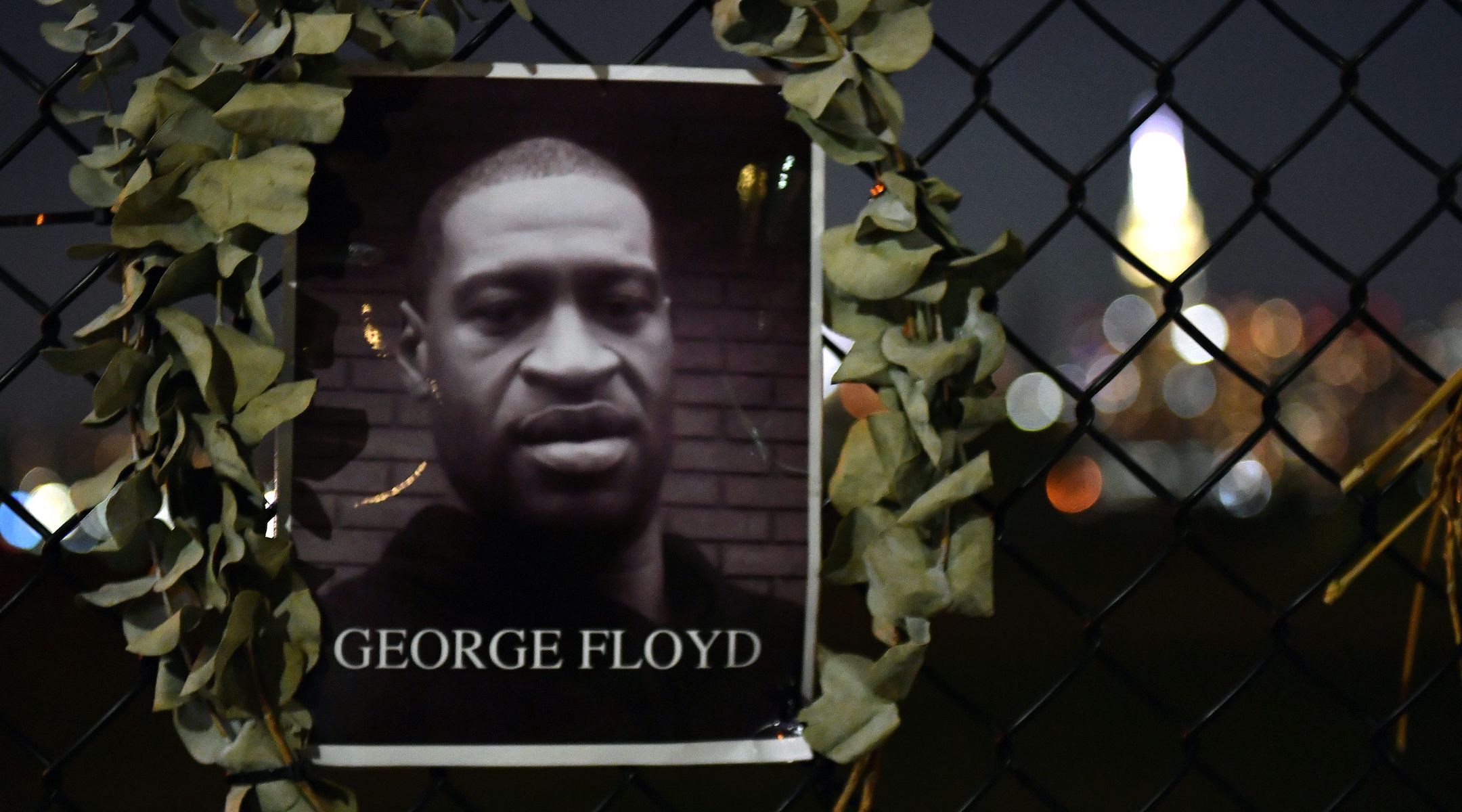(JTA) — From the coronavirus pandemic to the fires that have ravaged California to the anxiety of our politically polarized moment, there was no shortage of current events for rabbis to mine in their High Holiday sermons this year.
But the topic that stood out this Yom Kippur, the day of atoning for one’s sins, was racial injustice and the worldwide protest movement trying to eradicate it that exploded following the death of George Floyd in May.
On Zoom and other online platforms necessitated by pandemic social distancing guidelines, rabbis across the country tackled the topic eloquently in a Jewish context, calling on their white congregants to do more than stand by and acknowledge the racism problem in America.
Here are just a few moving sermon selections from Monday found online by the time of publication. (Note that most Orthodox congregations do not permit the use of technology to record services, so they aren’t represented here.)
Rabbi Erin Glazer, Temple Sinai in Summit, New Jersey
Video: https://venue.streamspot.com/video/8c68ba20da
Glazer cites famous texts by Yaa Gyasi and Ta-Nehisi Coates to get at the enormity of the history of racism in America — what Gyasi terms in her novel “Homegoing” as something “that stretched so far back, was so impossibly large.” Glazer also talks about her own journey with coming to terms with the fact that she has been privileged to “feel as if issues of race and racism were periodic episodes, demanding my attention intermittently, rather than ongoing, daily realities.”
“For us to change, for our country to change, we must engage in true teshuvah [repentance], beginning with an acknowledgement of the sin and our part in it,” she says.
Rabbi Angela Buchdahl, Central Synagogue in New York City
Video: https://www.youtube.com/watch?v=FNhG8aW6gbI&feature=youtu.be
Text: https://forward.com/life/455275/for-this-korean-american-rabbi-jewish-peoplehood-is-powerful-and-real-and/
The Korean-American Buchdahl is among the few Jews of color helming an American Jewish pulpit, let alone a large one such as Central Synagogue — and her physical appearance remains a topic of confusion and discussion for some in her community. Her sermon this year focuses on defining Judaism as a religion rather than a race.
“The notion of Judaism as a ‘race’ is a construct — one created by our enemies— to justify anti-Semitism, violence and even genocide. And yet, we Jews still cling to this idea that there is something immutable about us — a genetic type, ‘a look’ — that makes us what we are,” she says. “But we Jews have never been just one color, or one cluster of chromosomes.”
Rabbi Michael Holzman, Northern Virginia Hebrew Congregation in Reston, Virginia
Video: https://www.youtube.com/watch?v=4uLPiNSDEu8
Holzman acknowledges that though he has touched on American racism in previous sermons, he had never dove headfirst into the subject.
“It seemed too vast and too obvious,” he says. “This year, avoidance is no longer an option.”
Like Glazer, Holzman argues for finding a constructive way forward, not being content to “just look at the problem and talk about the problem and think about the problem.”
Rabbi Marc Katz, Temple Ner Namid in Bloomfield, New Jersey
Video: https://www.youtube.com/watch?v=69f16v-cFew&feature=youtu.be
Katz recalls a biblical story involving Abraham, the Jewish patriarch, who one day stops in front of a palace that is on fire while others pass it by. When Abraham asks “Who is the master of this house?” God realizes that Abraham cares about the owner of the home, while others do not, and chooses him to lead the chosen people.
Recognizing a fire — in this case, racism — is intrinsically Jewish, Katz argues. And being Black in the U.S., he says, “is to live in a perpetually burning house.”
Rabbi Robert Levine, Congregation Rodeph Sholom in New York City
Video: https://rodephsholom.org/worship/holidays/high-holy-day-sermons/high-holidays-sermons-5781/
Text: https://rodephsholom.org/wp-content/uploads/Rabbi-Levine-YOM-KIPPUR-5781-THE-URGENCY-OF-NOW-long-version-FINAL.pdf
Jews know from painful lived experience what it feels like “to be right in front of people and not to be noticed,” Levine says.
“I would hope that the events over the past months would help all of us open our eyes to profound injustice affecting people of color in this and every other country. Now to be honest, when we see African-Americans, in our own eyes there may be concern, fear even. How fast do we look away or get away? George Floyd begs us to do otherwise.”
Rabbi Sharon Brous with Bryan Stevenson, IKAR in Los Angeles
Video: https://ikar-la.org/sermons/the-path-to-redemption-a-conversation-with-bryan-stevenson-rabbi-sharon-brous/
Brous doesn’t focus specifically on racial justice in her Yom Kippur sermon, but the prominent spiritual leader held an online conversation just before the holiday with Bryan Stevenson — the Black lawyer and activist behind the Legacy Museum in Alabama on the history of racist lynching (who has also been inspired by Holocaust commemoration). In a wide-ranging conversation, the pair discuss the history of slavery and the ways that different faiths can come together to spur change.
JTA has documented Jewish history in real-time for over a century. Keep our journalism strong by joining us in supporting independent, award-winning reporting.






